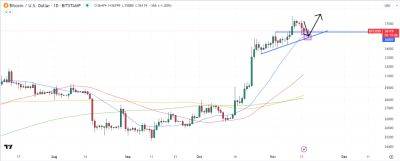Net worth surged 37% in pandemic era for the typical family, Fed finds — the most on record
Net worth surged for the typical family during the pandemic era, largely on the back on higher home and stock prices and government stimulus measures, the Federal Reserve reported Wednesday in its triennial Survey of Consumer Finances.
Net worth is a measure of household assets after accounting for liabilities. After accounting for inflation, median net worth jumped to $192,900, a 37% increase from 2019-22, the Fed found.
That percentage growth was the largest since the Fed started its modern survey in 1989. It was also more than double the next-largest increase on record: Between 2004 and 2007, right before the Great Recession, real median net worth rose 18%.
Increases in net worth were «near universal across different types of families,» the Fed said.
More from Personal Finance:
These borrowers could get student loan forgiveness under 'Plan B'
53% of Gen Z see high cost of living as a barrier to financial success
Workers are asking for emergency savings accounts as a job benefit
«Americans got a lot wealthier during the pandemic,» said Mark Zandi, chief economist of Moody's Analytics.
In large part, that was due to the Federal Reserve lowering interest rates to rock bottom at the onset of the pandemic, easing borrowing costs for consumers, Zandi said. An expanded social safety net made it less likely people had to take on debt. And when became clear the U.S. economy would recover quickly from the early pandemic shocks, due to government support and vaccines, asset prices like stocks and homes «took off,» Zandi said.
Of course, not everyone benefited equally: Assets like homes and stocks are generally not held by families in the bottom 20% by income, for example, the Fed said.
And wealth gaps are still big: Families
Read more on cnbc.com






















